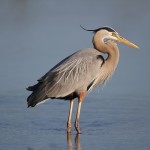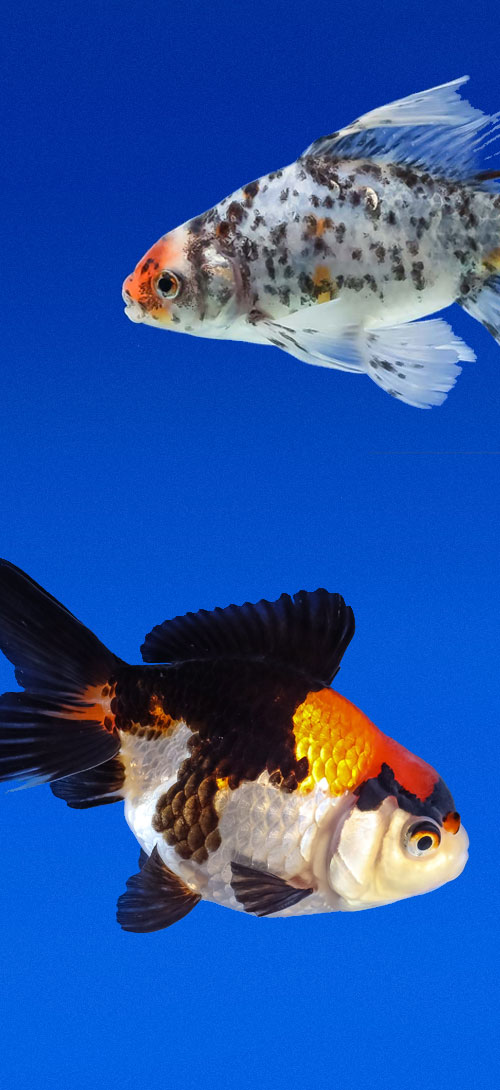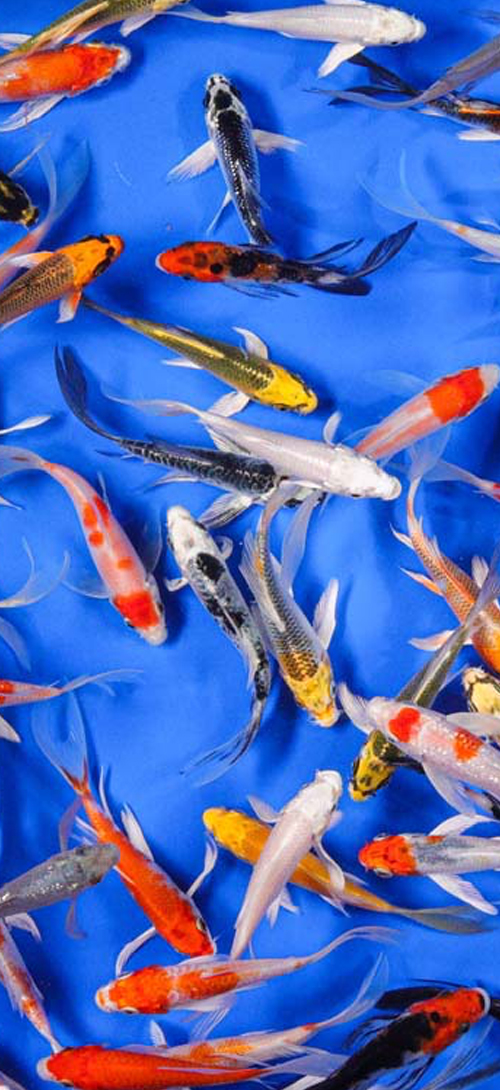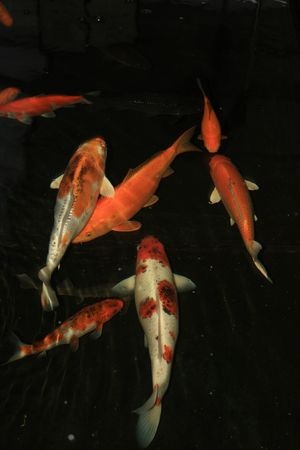Koi Fish Facts
Koi Fish Predators
It may seem a little far-fetched to believe that in an urban (or suburban) setting that your koi fish could potentially fall victim to wildlife predation. Yet many enthusiasts lose some of their prized dragon fish to a variety of predators (as this edhat article about an osprey eating a koi fish points out).
A brightly colored fish in a smallish body of water is truly an attractive proposition for all manners of predators. However, it is Blue Herons and raccoons that usually top the koi fish predators most wanted list. Both are industrious and determined predators. Here are a few of the koi fish predators that you might eventually have to battle as a koi owner with an outdoor pond.
Raccoons

Deeper ponds tend to be safer from raccoons. Also, if there is no convenient entry point, like a plant shelf, a raccoon will usually seek a more easily accessible meal. It is another reason why steep-sided, 3-4 feet deep ponds with plant shelves with depths of 1 foot or more are recommended.
Herons

As Herons are solitary feeders (meaning they usually like to dine alone), putting a plastic heron in or around your pond can save your pond from closer inspection. However, as intelligent and persistent predators, enthusiasts will tell you that they will eventually come to investigate a bird that hasn’t moved from the same spot since the last time they flew over. Moving the decoy periodically is recommended.
Enthusiasts point to the effectiveness of the battery-powered ScareCrow Motion-Activated Animal Deterrent. As the name suggests any motion it senses prompts the sprinkler to blast out water to ward off the creature in question.
Mink
Another one to watch for is mink. They don’t scare easily and have hefty appetites, so they can do some significant damage to a well-stocked pond in a very short time.
As versatile and small semi-aquatic hunters (part of the same family as the weasel), netting isn’t as effective. Wire mesh with smaller loops is a better option — if feasible for your type of pond. Some pond companies have also noted success with electric fencing.
River Otter

River Otters can, and have, cleaned out entire production ponds (many, many times more fish than you would find in a hobbyist pond) so imagine what they would do to a smaller pond.
Using the same path (or “run”) to get to and from a potential feeding source, trapping along that run can solve the problem. However, they are clever and observant koi fish predators and if they catch scent of you being there or notice the run has been otherwise disturbed, they will slip around your carefully laid trap.
Other Culprits
Although perhaps not as deadly (or in some instances prevalent), there are some other koi fish predators to be on the look out for:
Cats and dogs — yes, they like to get in on the fish hunting action from time to time.
Turtles — more of an issue in less populated areas, they are fish eaters and can pose a threat to your koi (especially the smaller ones).
Bullfrogs — they will eat koi as well as anything they can get into their mouths.
Foxes, beavers, otters, possums, egrets, kingfishers, hawks and owls can sometimes pop up from time to time as the culprits in different settings.
If you are a koi fish owner, drfostersmith.com recommends that you contact your local fish and game wildlife office or municipal animal control. They will give you a list of potential predators you can expect to belly up to your koi pond. Knowing what you are up against is a good start in being prepared.
It is also worth noting that many of those species that are koi fish predators are on protected lists (like the Blue Heron). As part of your research, you should identify which of them are protected by local, state and federal laws as well as which non-lethal means you can use to get rid of them.
Should you be looking to add to your pond or tank, Next Day Koi has an impressive and wide selection of koi fish available for sale. Sourced from some of the best farms around the world, we couple the choice with some of the most competitive Next Day Air shipping rates in the industry.
Contact us to find out how we can help get your pond stocked.




